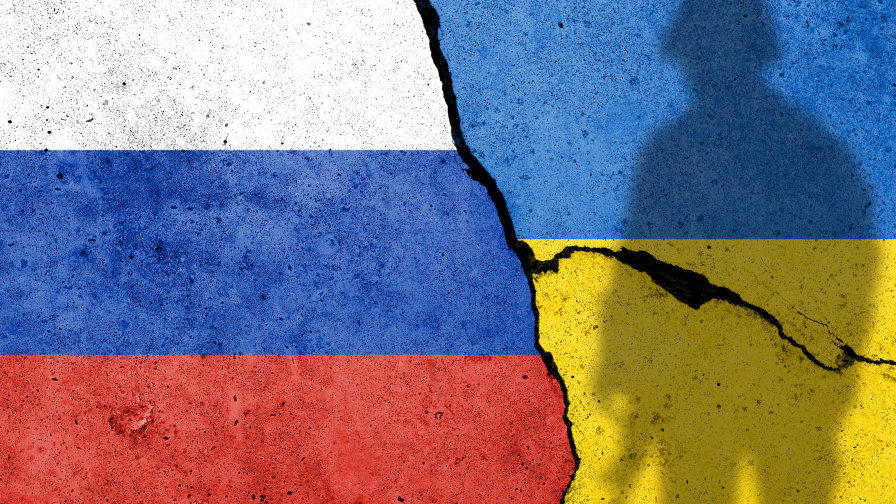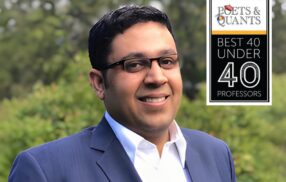
UVA Faculty Experts Offer Insight and Context on War in Ukraine
As much of the world’s attention remains focused on the Russian invasion of Ukraine, faculty members at the University of Virginia have provided valuable insights and context in recent days in pieces published on UVA Today regarding Russian aims and potential outcomes.
On 1 February, as Russian troops began to mass at the Ukraine border, former U.S. diplomat Stephen Mull, UVA’s vice provost for global affairs, offered a historical perspective on the crisis and made a case for why Americans should pay attention to the budding crisis.
The unusual aspect of this crisis is that Russia appears to have manufactured it based on what Putin believes is a coincidence of geopolitical factors favoring Russia’s interests, as opposed to any single flashpoint.
NATO’s commitment to Ukrainian membership has not wavered since 2008, but neither has it moved forward toward that goal, and most observers believe Ukrainian membership is at least a decade or much longer away, if indeed it will happen at all. Russia has also bridled against U.S. and some European defensive military assistance to Ukraine and expanded NATO exercises on the territory of eastern NATO members since Russia’s 2014 invasion of Ukraine.
Read more in “Russia-Ukraine Crisis: What’s Going On — and Why Americans Must Pay Attention.”
On 21 February, before the invasion, faculty experts gamed out likely scenarios and speculated on the fallout of war in Ukraine.
If Russian President Vladimir Putin decides to invade Ukraine, i.e., to advance in force into Ukrainian territory with the aim of holding territory, it will represent the last nail in the coffin of the post-Cold War security order in Europe,” said Allen Lynch, a Russia expert and professor of politics at the University of Virginia.
“The costs of such a blatant act of aggression will inevitably be high: immediately in terms of loss of life and property, and eventually by rendering Ukrainian hostility to Russia irreversible and further isolating the already stagnant Russian economy from its primary European markets,” he said.
Read more in “On the Brink: UVA Experts Weigh in on Potential Russian Invasion of Ukraine.”
On 22 February, UVA Law professor and Russia expert Paul B. Stephan spoke about what Russia hoped to gain via a potential invasion.
Russia sees itself as a revisionist state. The mentality of Moscow for the entirety of this century has been one of dissatisfaction with what they saw as the immediate settlement at the end of the Cold War. They perceive the Russians’ treatment by the United States and Europe during the 1990s as exploitative and harmful. They never again want to be in a position of what they perceive as the subjugation that they experienced in the 1990s, something that we on our side experienced as simply exposing them to the advantages of democratic politics and an open economy.
Read more in “What Does Russia Really Want in Ukraine?”
On 24 February, after Russia invaded Ukraine. UVA faculty experts offered context on the most significant conflict in Europe in decades.
“Democracy is at the heart of this conflict,” said Todd Sechser, the Pamela Feinour Edmonds and Franklin S. Edmonds Jr. Discovery Professor of Politics. “Putin does not recognize the legitimacy of Ukraine’s democratic government, and it appears that regime change is a core objective of the invasion. The rivalry between Russia and the West is not only about power; it is about what form of government will prevail in the 21st century. This war is the clearest illustration of that struggle.”
Read more in “Russia Invades Ukraine. What Does It Mean?”
On 28 February, after Russian President Vladimir Putin raised the specter of a nuclear assault, UVA experts, including Sechser unpacked the impact of the threats.
“If the nuclear alert was intended to coerce the United States and Europe into ratcheting down economic sanctions or abandoning Ukraine, it failed. If anything, it has served to further inflame world opinion against Russia,” Sechser said. “But this fits the historical pattern: nuclear threats are only credible for self-defense, not as a means of coercion.”
Leaders may have the misconception that nuclear threats are a dial they can turn up and down to get what they want. But, Sechser said, “they soon discover, as Donald Trump did with North Korea, that it isn’t so simple.”
Read more in “How Worried Should We Be About Russia Using Nuclear Weapons?”
On 2 March, as the war grew in size and intensity, UVA Today checked in with Professor John Owen regarding what the war could mean for larger global struggles around democracy.
The principle of governmental accountability is under attack. Ukraine has held several rounds of free, competitive elections since its independence in 1991. Of course, free elections in Ukraine are a threat to Putin because the resulting government may want to align Ukraine with the West. So Putin almost certainly wants Ukrainian elections to be fixed, with one party certain to win, just as Russian elections have been fixed for more than 20 years. Ukraine also has not exemplified the rule of law very well, but Putin wants to remove any chance of the rule of law taking hold there. All of these institutions – free expression, competitive elections, rule of law – are linked and mutually reinforcing, of course.
Read more in “How Russia’s Attack on Ukraine Threatens Democracy Everywhere.”
On 8 March, Mull discussed tools the countries were using to isolate Russia while seeking to avoid a broader conflict.
The U.S. and its allies have taken a four-pronged approach in response to Russia’s invasion: one, international condemnation and isolation; two, severe economic sanctions to impose significant costs on the Russian economy; three, substantial military assistance and intelligence-sharing with the Ukrainian armed forces; and four, military reinforcement of NATO’s eastern frontier to deter the spread of the conflict.
While the combination of these tools has not yet had the effect of reversing the Russian invasion, it is clear that the Ukrainian military is using its NATO-supplied weapons to great effect in slowing the Russians’ military progress on the ground in Ukraine.
Read more in “How the West is Working to Avoid World War III.”
In addition to pieces on UVA Today, the blog at the UVA Miller Center has featured running commentary on the war and its impact and the UVA Global Blog has been cataloging relevant events. The Diversity at Darden blog published a guide featuring resources for aid to Ukraine.
The University of Virginia Darden School of Business prepares responsible global leaders through unparalleled transformational learning experiences. Darden’s graduate degree programs (MBA, MSBA and Ph.D.) and Executive Education & Lifelong Learning programs offered by the Darden School Foundation set the stage for a lifetime of career advancement and impact. Darden’s top-ranked faculty, renowned for teaching excellence, inspires and shapes modern business leadership worldwide through research, thought leadership and business publishing. Darden has Grounds in Charlottesville, Virginia, and the Washington, D.C., area and a global community that includes 18,000 alumni in 90 countries. Darden was established in 1955 at the University of Virginia, a top public university founded by Thomas Jefferson in 1819 in Charlottesville, Virginia.
Press Contact
Molly Mitchell
Associate Director of Content Marketing and Social Media
Darden School of Business
University of Virginia
MitchellM@darden.virginia.edu




